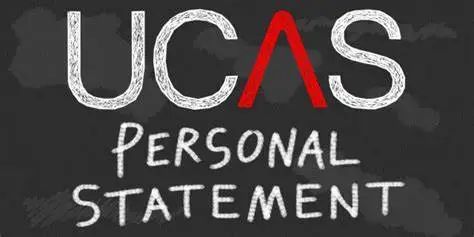

Studying in the UK: Writing Your Personal Statement
 CURIO’s UK Head Counselor, Suzanna will share knowledge to students focusing on UK education, UK G5 colleges, admission requirements, study abroad planning, background enhancement, essay writing, application procedures, scholarships, UK visas, accommodation, expenses and other important information to help you study in the UK.
CURIO’s UK Head Counselor, Suzanna will share knowledge to students focusing on UK education, UK G5 colleges, admission requirements, study abroad planning, background enhancement, essay writing, application procedures, scholarships, UK visas, accommodation, expenses and other important information to help you study in the UK.
▌COLUMN EDITOR
Suzanna Brown
With years of experience in international education, up to date knowledge of UK admission trends, native English speaker, and receiver of the British Council’s “Educational Consultant Qualification Certificate” Suzanna is committed to helping students carry out a comprehensive plan for successful studying in the UK.
▌This Week’s Subject ——
“Writing a Great Personal Statement”

Your Personal statement is important. Good writing can become the key element that convinces the admission officer to say “yes”, but a poorly written personal statement can be harmful. How to make a personal statement attract the attention of admission officers should be carefully considered before writing it.
▌Core Content ——

▌Q&A With a College Counselor
Question #1
Teacher, to whom is this personal statement written? What is the purpose of writing a personal statement?
Suzanna
Your Personal Statement is written by the applicant when applying for college. Generally speaking, you can only submit one personal statement in the UCAS system in the UK. The limit is 4000 characters (or 47 lines).
This document is to let university admissions staff understand your clear and strong motivation to choose a certain major and to prove that you have the skills and experience needed in the chosen field to complete the major.
Question # 2
Why is a good personal statement key to a successful study abroad? Why is it so important during the application process?
Suzanna
In the application of a university in the UK, your personal statement and other parts of your UCAS application will be carefully considered by academics and admissions team professionals.
Many programs are highly competitive, and it is expected that applicants who meet the entry requirements will often exceed the spaces available. In this case, a great personal statement will help you stand out from the many applicants with similar scores.
Therefore, how to effectively use one and a half pages to express yourself more effectively is very important.
Question #3
I see that there is no specific requirement in the personal statements, and I don’t know where to start. In addition to academic performance, what other skills do I need to demonstrate?
Suzanna
Indeed, schools do not have a fixed list of what they want.
Demonstrating the following qualities and abilities, the relevance of your courses, and how these experiences can help you develop, helps to form a rich and persuasive personal statement:
- learning skills
- Self-Self-awareness, motivation, and commitment
- Understanding of the course
- Good computing and literacy
- Academic essay writing ability
- Research ability
- Time management ability
- Passion for learning and demonstrating your own professional activities
Question #4
What should be suggested for personal statements?
Suzanna
Since there is no absolute right way to write a personal statement, there is no “magic formula” for writing a personal statement.
The following topics can be used as a reference for your personal statement. They can be included in the personal statement to help you plan.
❶ Say why you want to apply for this major
including your professional ambitions and your interest in this major, school, and undergraduate study. Explain what attracts you about it.
❷ Think about what makes you suitable for this profession.
It can be related experience, skills, or achievements you get from learning or other activities, including any clubs or societies you belong to, sports, music or creative pursuits. Find impressive examples that prove that you match your major.
❸ Mention critical extracurricular activities are related to professional pursuits, such as participating in summer school projects related to your majors, like volunteer or internship experience.
❹ It is best to apply for 5 majors that are somewhat similar. It will be easier to prove your passion and focus on that major. If you choose different majors, write some common topics, such as problem solving or creativity.
As an international student, there are some additional things you should mention to let the school know that you are a student with a clear motivation:
❶ Why you want to study abroad instead of studying in your own country?
❷ Why do you want to study in the UK?
❸ English language skills, and any English courses or exams you have taken.
Question #5
How do I start writing my personal statement?
Suzanna
Take your time, here are some guidelines for you to follow, but remember that unique personal statements will help admissions officers understand you better.
❶ Format
It should be as enthusiastic, concise and natural as possible, not too complicated.
❷ Language style
If you want to stand out, you need to have your own writing style, but considering you don’t know who will read your personal statement, try to avoid using humor or making any controversial statements.
❸ Related to Major
Every course you can apply for is listed in the UCAS search tool (https://digital.ucas.com/search), along with the entry requirements and the university’s course description, and try to combine your strengths and experience with the course requirements Match-You can use these to help you decide what to write.
❹ What Do You Want to Accomplish
List the things you need to show to the school that you have, and organize your lessons, skills, and results.
❺ Motivation
It is important to show enthusiasm, motivation, and focus on the profession you are applying for. You should mention your extracurricular activities, transferable skills, including your career planning after graduation. The best personal statements can effectively connect students’ extracurricular activities with college admissions requirements.
Note
Make sure your personal statement is no more than 4000 characters or 47 lines. You can check your personal statement length in writing programs like Word, which can see the number of lines and characters.
Question #6
I also understand that personal statements should avoid shallow statements such as “I have dreamed about this since I was a child”. Is there any technique to make personal statements sound authentic?
Suzanna
❶ Don’t Boast
Start with simple and powerful highlights. The rest should focus on the qualities that admissions officers seek.
❷ Be truthful
Make sure your personal statement reflects your real accomplishments and thoughts.
Your academic content should be around 80% and the other 20% should focus on your extracurricular activities.
Question #7
What should be avoided in personal statements?
Suzanna
It is recommended that you pay attention to the following when preparing your personal statement:
❶ Mentioning experience does not mean listing academic scores
I suggest focusing more on a few topics and understanding how they contribute to the course you want to study. At the same time, be sure to show that you know your strengths and clearly outline your ideas.
❷ Don’t Plagiarize
Systems can automatically recognize if you have used others’ words and you will be warned by the system if you do so.
❸ Don’t exaggerate
Remember that during the interview, you may be asked for details of any experiences you mentioned in your personal statement.
❹ Don’t Just Rely on the Spell Check
It won’t help you check all errors, you should proofread as much as possible. Make sure that spelling, punctuation, and grammar are correct.
❺ Don’t mention a specific school
Remember that you can only write a personal statement for the same major you are applying for. Therefore, you should not mention any school in your personal statement.
❻ Don’t Write it Last minute
Start writing your personal statement as early as you can. It might take you several drafts before you are satisfied, so give yourself plenty of time.
Students and parents can contact me through the QR code below if you want to get more personalized application planning or if you have more questions about the UK applications. Suzanna will be back next week with another column about “UK Admissions”
Suzanna will be back next week with another column about “UK Admissions”
See you ❤️
Follow us on WeChat






